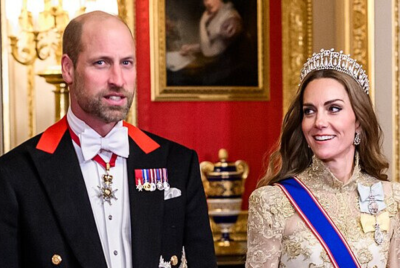Peter Sullivan Cleared After 38 Years in Prison—So Who Really Killed Diane Sindall That Night?

On 13 May 2025, Peter Sullivan, now 68, walked free from court after the Court of Appeal quashed his 1987 murder conviction—closing one of the most harrowing chapters in British legal history. He had spent 38 years behind bars for the murder of 21-year-old Diane Sindall in Birkenhead, Merseyside, a crime he always insisted he did not commit.
The case was overturned after new DNA evidence emerged, definitively excluding Sullivan as the perpetrator. The court's ruling marks what many legal experts have called one of the longest-running miscarriages of justice in the UK. For Sullivan, it ends decades of waiting. For Diane's family, the question of who really killed her still remains painfully unanswered.
A Conviction Built on Flawed Foundations
The original case against Sullivan was based on a now-discredited confession taken during police interviews, conducted without a solicitor present, and bite mark evidence—once relied upon in courtrooms, now widely dismissed as unreliable. Forensic science in the 1980s lacked today's precision, but thanks to preserved biological samples, the truth eventually surfaced.
Advancements in DNA testing allowed investigators to re-examine the crime scene evidence. The resulting profile did not match Sullivan, leading the Crown Prosecution Service to admit that, had this evidence been available at the time, the case would never have gone to trial.
A Brutal Crime That Changed a Community
Diane Sindall's murder in August 1986 shocked Birkenhead. A part-time barmaid and florist, she had been trying to get home after her van broke down. Her body was found in an alleyway—she had been sexually assaulted and beaten. The brutality of the attack horrified the community and led to the establishment of new support services for victims of sexual violence.
Sullivan, then 30, was quickly arrested and charged. Despite retracting his confession and maintaining his innocence, he was convicted and sentenced to life imprisonment. His appeals were repeatedly denied—until 2021, when the Criminal Cases Review Commission reopened his file.
'I'm Not Angry. I Just Want to Go Home.'
After hearing the ruling, Sullivan addressed the media briefly and quietly. 'I'm not angry. I'm not bitter,' he said. 'I'm simply anxious to return to my loved ones.' His sister, Kim Smith, echoed his words but also acknowledged the pain on the other side. 'We've got Peter back, but the Sindall family still don't have Diane. That part hasn't changed.'
The impact of Sullivan's wrongful conviction rippled far beyond the courtroom. For nearly four decades, he was held in prison while the real perpetrator remained unidentified. The emotional toll on both families has been immeasurable.
The Search for the Truth Continues
With Sullivan's name cleared, Merseyside Police have reopened their investigation into Diane's murder. More than 260 men have already been screened as part of the renewed inquiry. So far, no match has been found to the DNA profile recovered from the scene.
Police have appealed to the public for any new information that could finally bring closure to the case. Investigators hope that with today's tools—and public awareness—they may still find the person responsible.
A Justice System Under Scrutiny
Sullivan's ordeal casts a stark light on the fallibility of the justice system. His case joins a growing list of wrongful convictions that have emerged as science outpaces old investigative methods.
Legal experts say his conviction underscores the dangers of relying on coercive interrogations and questionable forensics. Others argue the system is still not equipped to catch and correct its own errors quickly enough.
But for many, the case is not just about institutional reform—it's about the human cost of getting it wrong. Years lost. Lives upended. Trust broken.
A Life to Rebuild
Sullivan now begins the difficult task of rebuilding his life after nearly four decades behind bars. His family say he's taking things one day at a time. 'He wants a quiet life,' his sister said. 'Just time with his family. That's all.'
The story of Peter Sullivan isn't over. But for now, it stands as a sobering reminder: justice delayed is not always justice denied—but it is always justice diminished.
© Copyright IBTimes 2025. All rights reserved.



















